In the past years, tourism’s growing share in national economies and the increasing touristification of many European cities prompted social innovators to develop new forms of tourism with new, non-extractive business models and more inclusive employment policies. So Stay Hotel in Gdańsk is one of the hotels born from this need for a more responsible tourism economy. As Poland’s first socially responsible hotels, So Stay creates social value by combining a business mindset and providing trainings, job opportunities and a pathway to a career in the hospitality and services sector to young people living in foster care.
During Eutropian’s recent visit to Gdańsk, Poland, to take part in a project meeting, we stayed in a small and cosy hotel, called So Stay. When travelling abroad, we always try to find accommodation that either has some kind of social mission or that promotes sustainable tourism. So Stay Hotel, on the outset, looks and feels the same as any other mid-price-range hotel and visiting their website will only hint at the fact that they are a socially-driven enterprise. Many guests only learn upon their first stay about the added social value of the hotel. While the social and economic models of So Stay are uncommon in Poland and beyond, they could serve as a good practice inspiration to other already-existing or prospective hotels looking to take up social functions.
We sat down with the director of the hotel, Małgorzata Gojlo Kaligowska, who told us about the establishment of the hotel, the collaboration between public, civic and private actors who made it possible (including the Municipality of Gdańsk) and the challenges and successes facing a socially sustainable hotel in Poland today.
The Foundation for Social Innovation in Gdańsk
Orunia Dolna is underprivileged district located in the City of Gdańsk. In the past ten or so years, it has been a subject of many community organising and social initiatives (including social businesses), in collaboration between the municipality and various civic and local stakeholders. The municipality has been working with the Foundation for Social Innovation (FIS) for over ten years which operates a neighbourhood house, a social cafe, homes for children, and runs activities for local residents living in social housing.
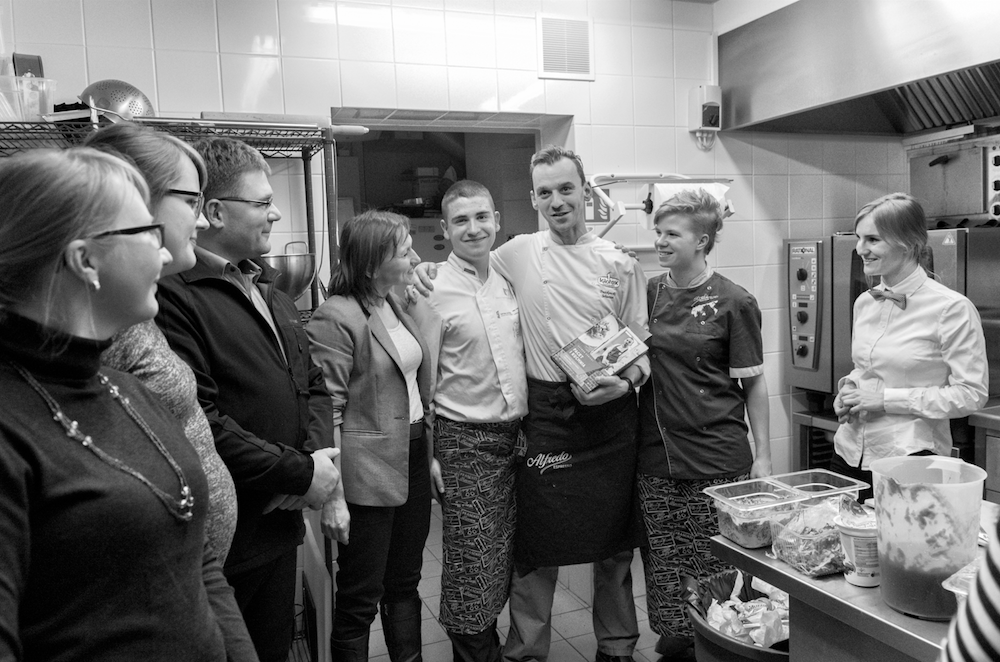
FIS provides foster home for children and youth without parental care in Gdansk and Gdynia. Educators in the Foundation noticed that young people who leave the homes for children can be unprepared for an independent life and struggle to acquire skills and therefore quality employment. To address this need, the Foundation decided to start carrying out business activities to complement their social work and to provide training, employment, and career prospects to the young people living in the homes.
The success of Kuźnia café, the foundation’s first social enterprise<
The prototype business of FIS was Kuźnia Café which very quickly became a success story after becoming a popular eating and drinking spot in Orunia district, providing valuable opportunities for learning and working for underprivileged youth. The model of the café is that youth living in foster care are employed and trained by the café, alongside employees from the regular labour market who serve as mentors to them, helping their professional development. The café was the Foundation’s first social enterprise, which proved to have created both economic and social value, with a business model to build on. The Foundation’s team understood that in order to enhance the chances of finding quality jobs on the labour market, young people need to learn about more than one professional path.
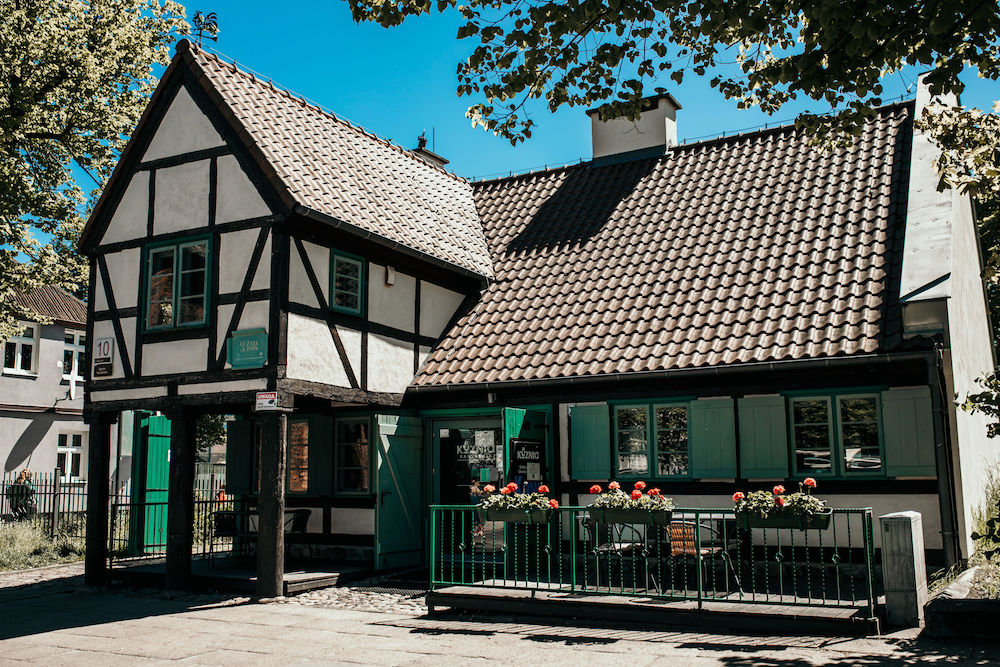
The establishment of a socially responsible hotel seemed like the next logical step for the Foundation, because the model they had tested with Kuźnia proved to be a successful one and they were ready to scale up their social and business services. In a hotel, FIS could offer young people different career paths including working in the kitchen, in cleaning services, reception or front desk services, as well as hotel management. While providing employment opportunities was the main reason for establishing the hotel, the hospitality and hotel industry in Gdańsk had started flourishing and expanding around this time. Shortly after the establishment of Kuźnia Café, work had started on So Stay Hotel, which opened in 2015.
Scaling up: the Model of So Stay Hotel
Around that time of So Stay’s hotel establishment there was only one other hotel in Poland with a social mission, that worked with people with disabilities. The social enterprise model for hotels was new and required innovation. The Foundation decided to come up with a business-minded model. The project received initial support from European funds and was able to hire a consultancy to receive advice on financial and business planning and strategy. In the initiators’ understanding, if the hotel wanted to compete with other existing hotels, it would have to compete on the quality of services and pricing.
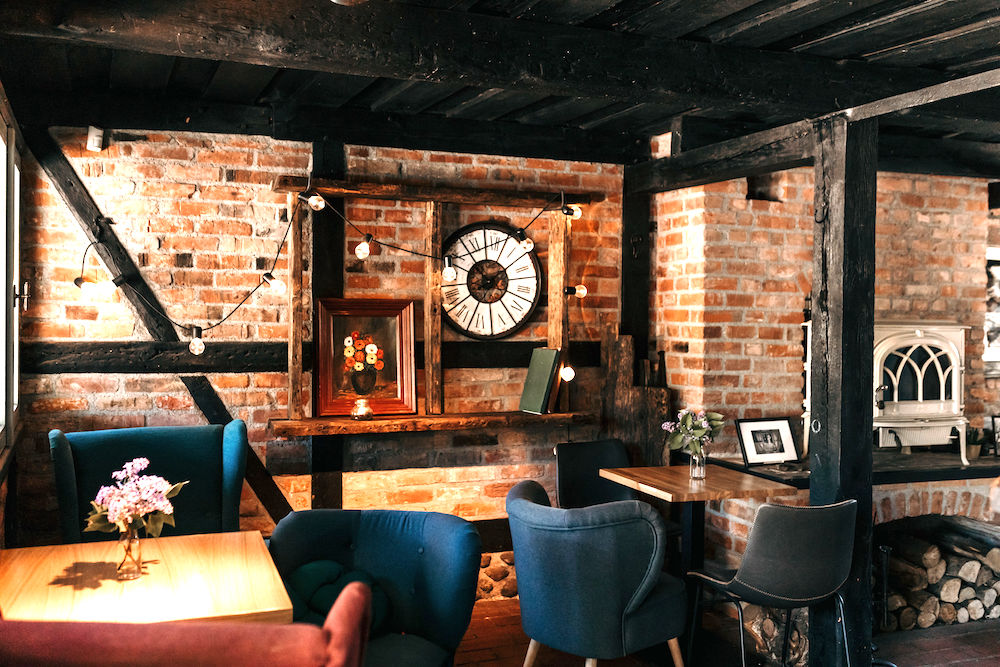
The Foundation for Social Innovation could not take on a feat of such magnitude on its own. Being still a small organisation at that time, it lacked the knowledge and financial means to renovate and set up a hotel on its own. The So Stay Hotel was therefore created in partnership with the Gdańsk municipality, and Danish Velux Foundation giving out grants to NGOs. The hotel’s building, owned by the municipality, used to be a police station but was abandoned for a number of years and its condition had deteriorated. While renovation was covered by the Velux Foundation, the municipality has been supporting the initiative by providing the building to the Foundation for Social Innovation free of rent. Such support helps the hotel stay economically sustainable and competitive in the tourism market.
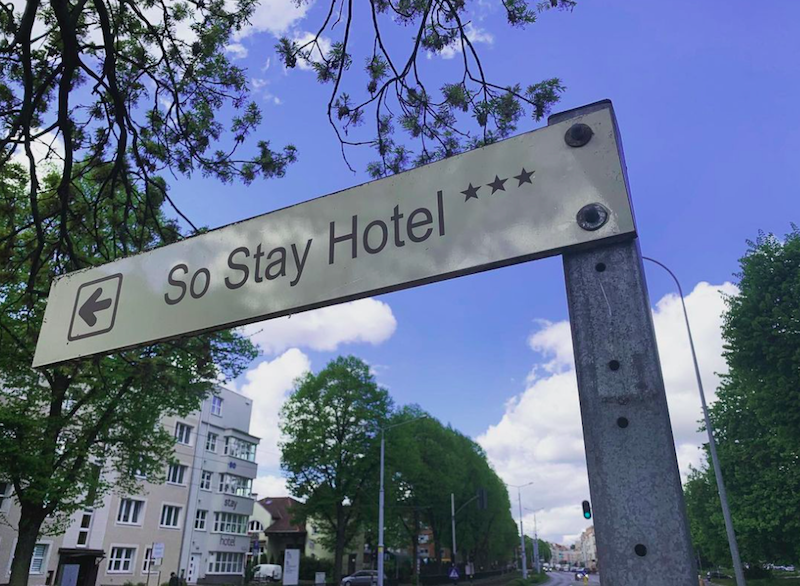
Apart from Kuznia Café and So Stay Hotel, a third business, Parkolada cafe, has been established since. So, the operation of the three social companies is ran through a non-governmental organisation model, with an associated business activity, all three operated by the Foundation for Social Innovation.
“We like to be an enterprise, we like entrepreneurship, but we are a foundation first and foremost.”
Professional pathways for apprentices
It is important for So Stay Hotel that they also have employees from the open labour market to ensure that their trainees learn from specialists who have been working in the hotel industry and have valuable experience. These employees, responsible for training and mentoring the apprentices, have qualifications and knowledge in different areas such as the kitchen, waitress services and catering, hotel management, etc.
Out of all employees about 30-40% are from youth homes for children, working in various fields and positions. Beneficiaries can become regular employees of the hotel, but they all begin with an internship which gives them both an insight into the sector and training to become a professional in this field. Some choose not to stay in the hospitality industry after completing the internship, some choose to seek employment in other hotels or restaurants but those who do want to stay and have proved themselves to be diligent in their roles are offered permanent positions. Additionally, the Foundation has contacts at other business companies that can help the beneficiaries look for work in different companies or other fields of activity.
“The hotel is the first place for these youth where they work, and be in a safe environment, where they can tell us if something is difficult.”
Communicating social value
Many people who first choose to stay at So Stay don’t know about the social aspect of the hotel. Some learn upon their visit and most are very impressed when they do. Many of the hotel’s customers are loyal and return upon their return to Gdańsk. For example, there is a court and a hospital in the proximity of the hotel and many of the lawyers/doctors come and stay at the hotel because they’ve learned about the social aspect of it through word of mouth. Even though there are some mentions on the hotel’s website about the mission of So Stay, upon their launch in 2015 they decided not to make the social aspect of the hotel an integral part of their communication or marketing.
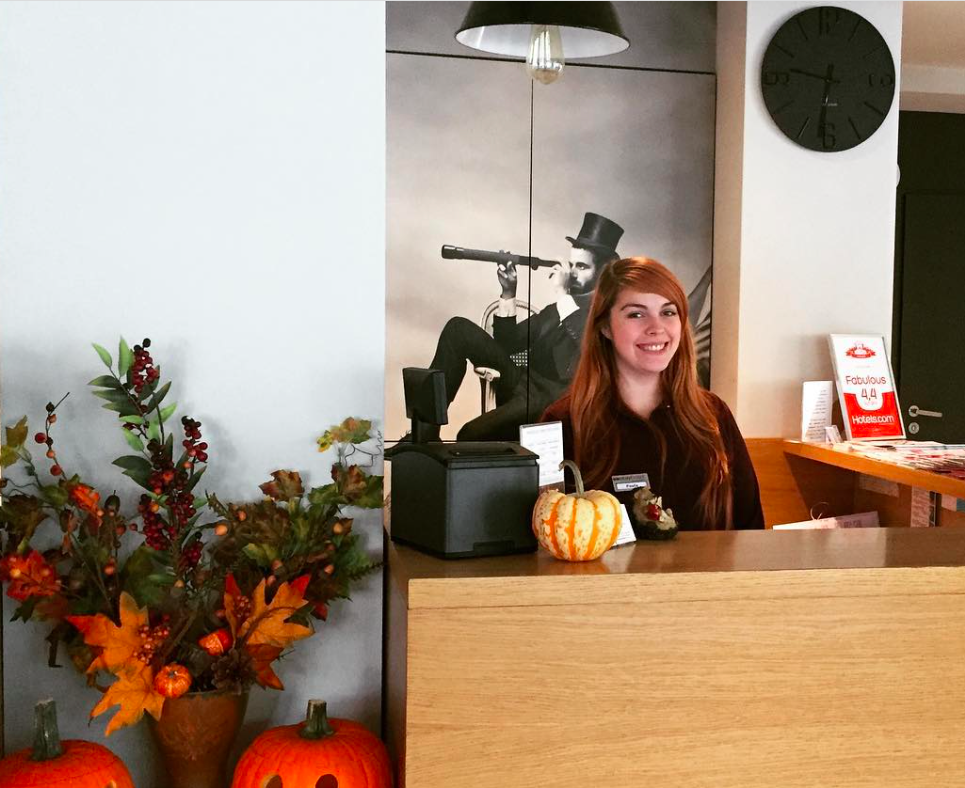
“Sadly, many people in Poland still think that the word “social” is something bad, the meaning reflects somehow that the quality is lower. Now, that we already have a position on the market we are ready to communicate the social aim more widely.”
The initiators of So Stay chose to compete with and be compared to regular hotels in Gdańsk and be judged based on the hotel’s service, instead of its social mission. After years of building the business, So Stay managers finally feel that by delivering a high-quality service, they have proven doubters wrong and shown that “social” doesn’t correspond to lower quality. With an established presence in the tourism market, So Stay can now begin creating a market advantage based on the added social value it creates, a feature gradually becoming more important to its current and prospective customers.
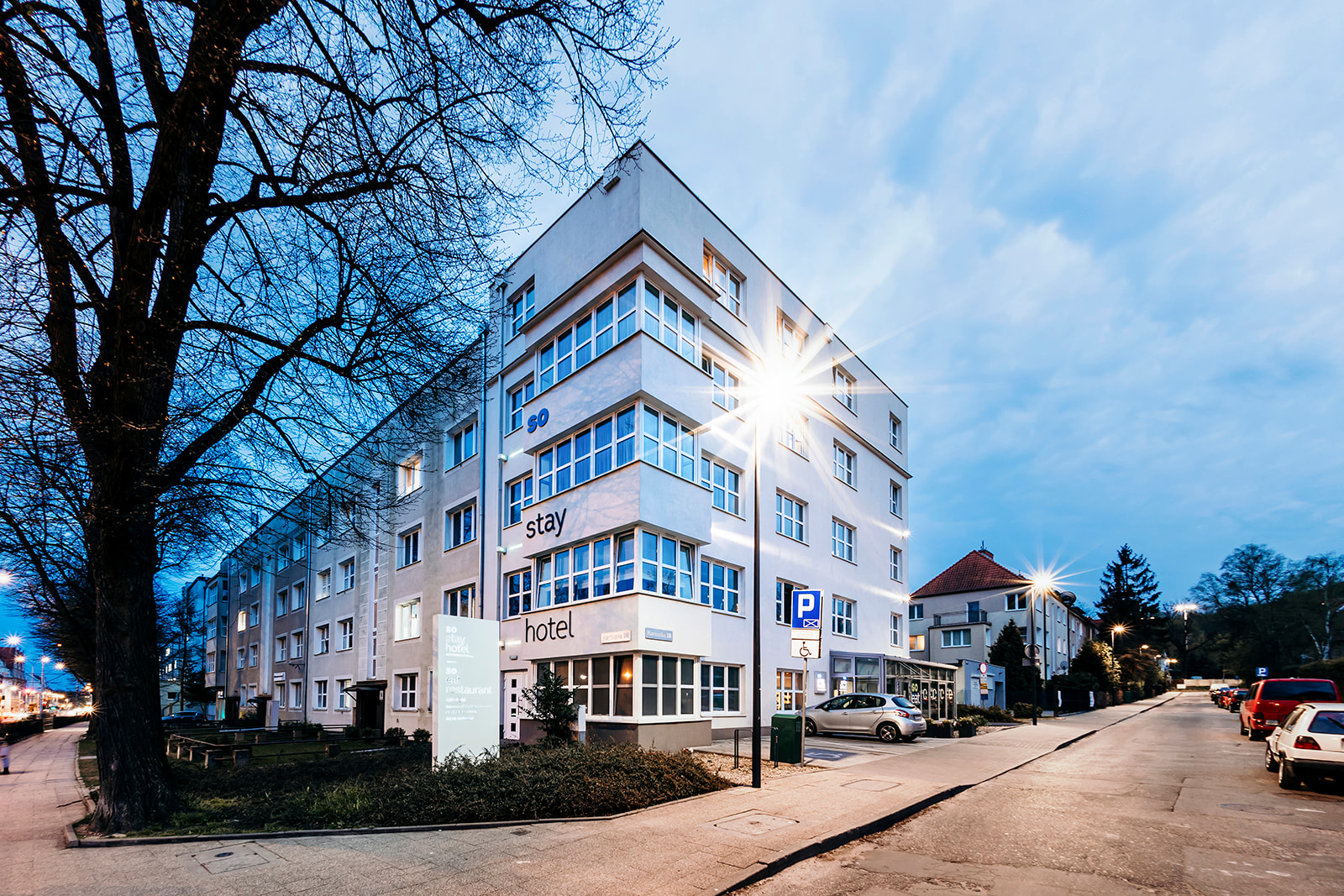
Facing crises
Getting through the past few years was particularly challenging, the Covid-19 pandemic and the war in Ukraine both placed a heavy burden on the social sector of Gdańsk. The Ukrainian refugee crisis has affected the Foundation for Social Innovation substantially: it has had to reorganise its activities to providing aid to incoming asylum seekers and settled refugees. This requires a lot of attention from the entire Foundation and puts a heavy burden on its staff. So Stay Hotel decided to not only employ youth from their children’s homes under their usual model, but also employ, teach and offer a professional pathway to Ukrainian refugees in the hotel.
Looking ahead, the Foundation at the moment does not have plans to extend its activities or to start another social business; instead, the organisation wants to improve its existing services. On the medium-run, GFIS plans to renovate the hotel, refurbishing the hotel’s interior. Besides its plans related to the hotel, the Foundation is engaged to continue its crucial work of training, employing and providing a professional perspective to underprivileged groups while delivering a high standard services to its customers.
Article by Lukacs Hayes

